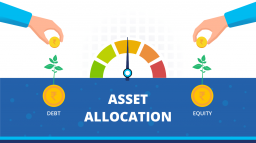Chitkara Business School Signs pact with ALPHABETA Inc for FinTech courses
Blog
Is Value Investing Dead?

Value Investing is all about investing in stocks where the current market price of the stock is lesser, compared to its intrinsic value. Intrinsic value is nothing but the present value of all the expected future cashflows from the stock. Estimation of the intrinsic value involves critical analysis of a firm’s financial statements, growth prospects, industry of operation, cashflows and quality of management and make an informed decision on the expected future cashflows. One arrives at a positive investment decision, when the current market price is less than the intrinsic value. Oh yes, it involves decent amount of time to evaluate a stock, at least the time we spend equal to…
Read moreWill the 2020 US presidential elections outcome significantly affect the Indian stock market?

Most of the world is waiting with bated breath the results of the most anticipated political event of 2020 – the US Presidential Elections! And this time it all unfolds in the backdrop of a raging global pandemic that shows no signs of ebbing.
Historical precedent
In terms of volatility, the S&P 500 index has typically shown a higher fluctuation in election years, as compared to non-election years1. This is mainly due to the market frequently repricing the potential impact of the new administration’s policies. In the current scenario, how the pandemic plays out, especially through the fall and winter, might make the US benchmark index even more volatile. And this uncertainty…
Read moreMomentum Investing in the Indian Market

In physics, one defines momentum as the tendency of a moving object to continue moving in the same direction. In Investing terms, it means, if the market has driven the value of a stock up for some time, it will continue to do so for some more time. In simple terms the current return pattern is expected to continue over the next short to medium term.
Momentum is an example of empirical phenomenon and it is fairly widely accepted that momentum works. It is based on the simple principle of “near future mimics the near past”. As it becomes more mainstream, and makes its entry into the playbooks of retail investors…
Read moreMarket euphoria during the pandemic – a cause for concern or an opportunity for the smart investor?

When the central bank governor points out the disconnect between the steep rise in stock markets and the state of real economy, it is time to take notice and act accordingly.
India recently announced Q2 GDP contraction by ~23% for FY2020. And yet, the stock markets have barely blinked. Sectoral behaviours are starkly different – Financials are down ~25%, Tech is up ~20% and Healthcare oscillates in between depending on daily news and updates!! FMCG has been largely flat throughout, as demand for items other than those deemed essentials is still struggling.
Since bottoming out in late March-early April, markets have rebounded almost 40% all across. However, most of…
Read moreCyclically Adjusted Earnings Yield (EPAC Ratio) as a Valuation Measure for Indian Markets

EARNINGS YIELD
Earnings yield in a layman terms, is computed by dividing the earnings from the asset by the price paid for the asset. Earnings yield for a stock or a market index (which is the inverse of the P/E ratio) gives us the earnings from the share or the index value. In this research, we compare Earnings yield for the broader market index(EY), with the 10 year treasury yield (TY) and validate whether it gives us an indication if the market is overvalued or undervalued. If the spread (TY - EY) between treasury yield and earnings yield is positive, market can be considered as overvalued. And if the spread is…
Read moreGen Z and Financial Services

Affluence and influence of the new consumers
Does Gen Z expect different attributes from financial services? If the answer is ‘yes’, then similar to the changing consumption patterns in other services, market leaders in financial services face the classic dilemma to keep the old guard happy and entice the new blood! Almost a third of Gen Z in Asia spends 6 hours or more per day on their phones[1]. The internet generation or the digital natives as they are referred to, are coming of age and they are going to be a substantial 25% of the population in Asia by 2025. Matching the numbers with their predecessors, the Gen Y (millennials),…
Read moreLearning by Playing

Several surveys, research studies and discussions on social media show that Finance and Accounting are among the hardest courses in college, especially among business school majors. There is always debate about which is the harder one. But virtually no argument about them being in the top 3 (alongside Organizational Behavior).
“Hardest course? Money and Finance. It was so hard because the professor was very hard to follow”
Tiff Macklem, Dean of the University of Toronto’s Rotman School of Management
“The toughest course I took at MIT Sloan School of Management was Accounting”
Scott Beardsley, Dean, University of Virginia (Darden)…
Gilt Funds: A cushion for volatile times

The default of IL&FS and DHFL had created a bubble of uncertainity and made investors cautious towards the credit and debt market in 2018. Unfortunately, more was still to come. Recently, the Franklin Templeton fiasco brought into limelight the risks associated with India’s debt market which, above anything else, is highly illiquid. The investors at the time of investment are given the confidence that funds can be liquidated any time they wish to, but the events that happened in 2008, 2018 and now again, have failed to fulfil the promise of the said liquidity.
Investors have been on a “risk-off” mode during the last few weeks. Equities are deemed…
Read moreDo – Learn – Apply – Repeat (and a platform that allows that!)

E-learning permeates all spheres of life today, ranging from learning a new language, computer skills, building subject matter expertise to developing life skills. And there are a number of ways, means and practices to impart this education – reading material, prerecorded video lectures, live chat, online sessions, App-based learning and so on. However, studies show that the completion rates for online courses hovers at an abysmal low of around 5-7%. What many course designers and platform creators are not able to materialize is ‘how to keep the learners engaged enough from enrolment to completion whilst maintaining the academic rigour?’ While most platforms and course designers…
Read moreA wake-up call for a disciplined investment approach – Will COVID 19 event, bring a positive change in investors behavior?

The need for a disciplined investment approach, with ideal asset allocation and rebalancing strategy is unfortunately realized only when the market goes through a distress time like the current scenario of COVID 19 crisis. While one might argue that, the Global COVID 19 crisis is a Black Swan event, which can’t be predicted, history repeats for itself and the market goes through these cycles and events at least at once in a decade. In 2008, the liquidity crisis and now in 2020, with the COVID-19 crisis, Investors with huge allocation to equity and retiring in 2020 and 2021, are caught off handed with the fall in the market value of…
Read more







